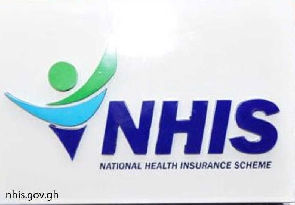 The National Health Insurance Scheme (NHIS)
The National Health Insurance Scheme (NHIS)
The move to digitise the registration process of the National Health Insurance Scheme (NHIS) is already yielding results, with the National Health Insurance Authority (NHIA) in the Ashanti Region recording some 2,902,306 in active membership for 2020, despite the impact of COVID-19 on their work.
This means the Regional office of the NHIA exceeded its target of 2,725,177 by 177,129; representing 107 percent of the 2020 target and 130 percent of the 2019 membership achievement figure.
This development is a positive step toward helping the country to achieve Universal Health Coverage (UHC) by 2030, as well as meeting Sustainable Development Goal (SDG) three (3) which seeks to “Ensure healthy lives and promote wellbeing for all at all ages”.
According to the Ashanti Regional Director of NHIA, Mr. Kwadwo Tweneboa-Kodua, the feat recorded is at variance with the global recession in business operations and performances, and therefore commended staff of the Authority.
Also, he said it is attributable to the “digitisation processing of institutions in the country, which has resulted in development of the NHIS Mobile Renewal Service”.
Significantly, NHIS members in the Ashanti Region use this platform to renew their membership. “We therefore encourage them to continue exploiting this avenue due to its convenience and cost-effectiveness,” he stated.
Other digital platforms the NHIA has introduced to bring about efficiency and convenience include the online application/renewal of Health Facilities Credentialing process and Electronic claims submission platforms.
Mr. Tweneboa-Kodua, who was speaking on the sidelines of the NHIA 2020 end of year review in Kumasi, acknowledged that the pandemic affected operations of the NHIA immensely. This was “due to the restriction that was imposed on the Greater Kumasi and other areas, which required that the region strategise to position itself and deliver on its mandate to the people,” he added.
“Despite religious observation of the COVID-19 protocols by both staff and NHIS members who visited the various offices, the NHIA adopted some strategies to ensure continuity in service delivery. This included rotation of staff to decongest the offices; limiting registration to the vulnerable in society; and intensification of education on the need to use the NHIS Mobile Renewal Service by existing NHIS members.”
On the payment of claims, the Regional Director indicated that most facilities in the region have been paid what is due them up to September 2020. The NHIA has a certain period within which the claims processing takes place for payment to be effected. However, it only allows a minimum of three months for payments to be delayed. So, in view of the total six-month duration for claims to be made and paid, Mr. Tweneboa-Kodua noted that, technically, the NHIA owes facilities one-month’s payment for the services rendered last year.
“If we are able to advance payment to them, we know it will definitely result in improving the quality of healthcare provision. So, it is our aim to close the gap. But, technically, we have made substantial payments to providers; and I believe that providers are okay with the way we have treated them.”